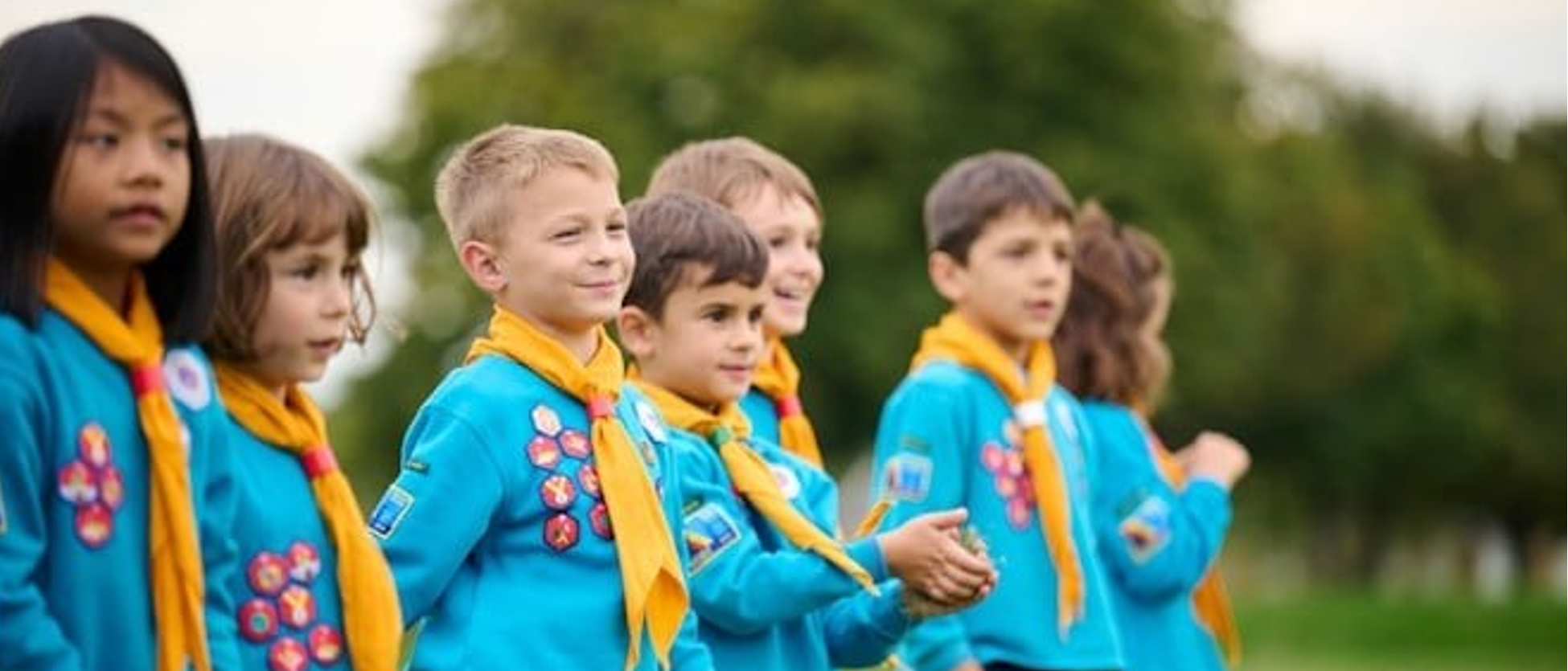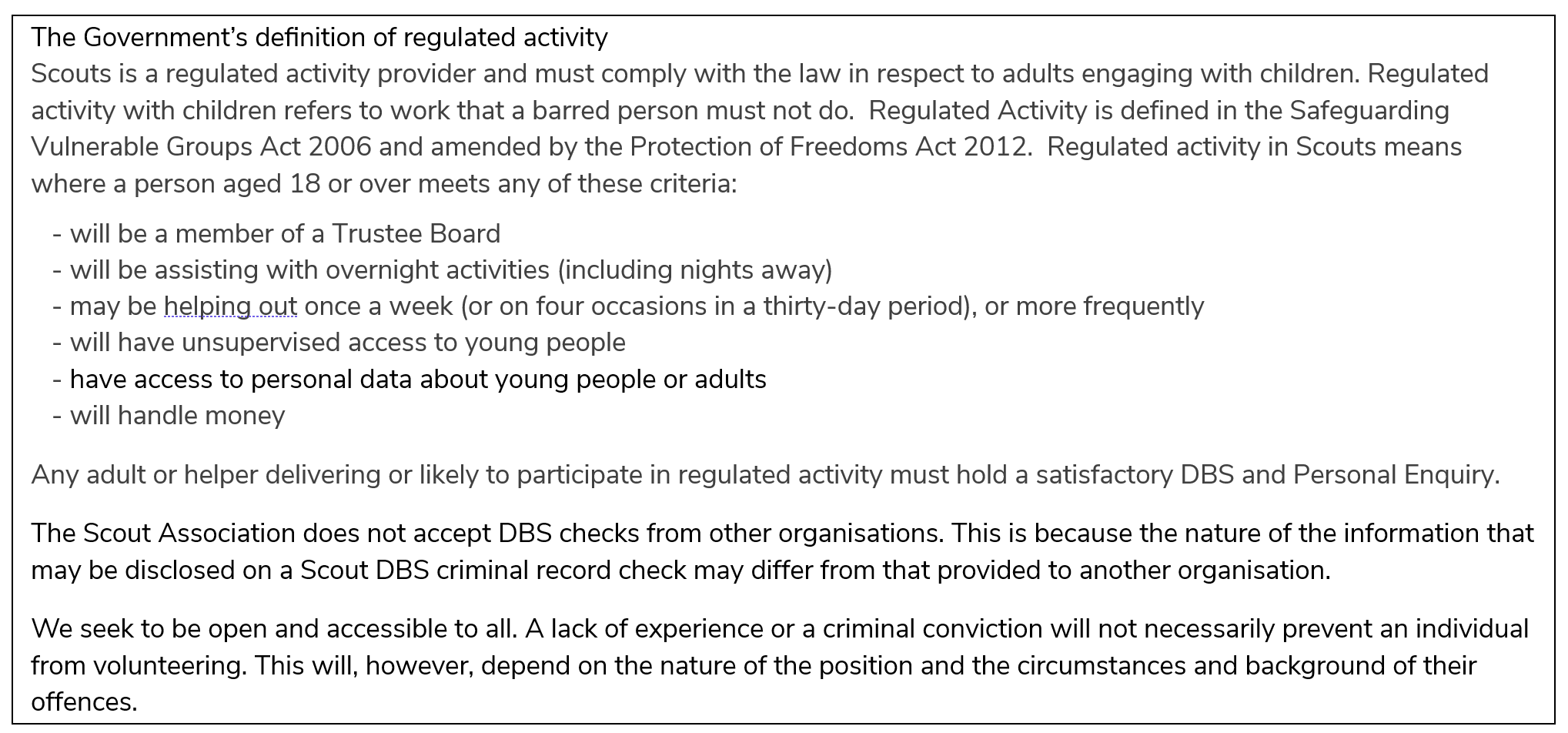Other ways to get involved in a way that suits you
In our new teams approach we'll continue to have helpers who will be able to give informal support to help deliver local scouting.
Understanding the differences between Team Members and Helpers is really important. It’s key for everyone to understand that Helpers are not members of the Scouts, they cannot have unsupervised access to young people (under any circumstance), and there is a limited to how often they can volunteer.
Team members...
Team Members work together to plan, deliver, and support an amazing programme for young people. They receive all the benefits of being a member of The Scouts including personal accident insurance and recognition of their service.
Team members can:
- help out as much as they choose to
- attend residential experiences
- run an activity with a group of young people
- have access to personal data about young people or adults
- handle money
- have unsupervised access to young people
- be a trustee
Team members also benefit from:
- personal accident insurance
- their time as a volunteer with The Scouts being recorded and recognised
Helpers..
Helpers provide informal support to help Section Teams deliver programmes to young people. They are not members of The Scouts so they do not receive any benefits of membership and are not cover by our members personal accident insurance, they are covered by our public liability insurance.
They are only recorded on our membership management system at scouts.org.uk if they are undertaking regulated activity, and therefore need a criminal record check (DBS).
Some examples of what helpers that aren't undertaking regulated activity
can and can’t do:
As they do not have a DBS check:
- the maximum they can help out is three times in any thirty day period
- they are not members of the Scouts or our sections teams
- they must always be supervised by at least one member of the Section Leadership Team (team member or team leader)
They can:
- be a member of the section’s adult rota
- run an activity with a group of young people under the supervision of a member of the section team
- attend and take part in section meetings and events (not overnight)
- support the leadership team during sections meetings e.g. prepare squash and biscuits or tidying up after an activity
- be a valued extra pair of hands, eyes and ears to help run weekly meetings
They can’t:
- help out more than three times in any thirty day period
- attend overnight events
- have access to personal data about young people or adults
- handle money
- have unsupervised access to young people
- be a trustee
Helpers who want to volunteer on four occasions or more in a thirty-day period do need a criminal record check (DBS), as their support involves regulated activity. This means that they will need to be registered on our membership management system at scouts.org.uk as a ‘Non member – needs disclosure’.
This also applies to family members, over 18 that are attending a family camp or residential experience.
Some examples of what helpers that are undertaking regulated activity can do:
As they do have a DBS check they can:
- support a section without needing supervision
- help out once a week - four occasions or more in a thirty-day period
- attend residential experiences
As adults recorded on scouts.org.uk as ‘Non member – needs disclosure’ are not members of The Scouts, they will not:
- get the usual benefits members receive, such as personal accident insurance
- their time as a volunteer with The Scouts is not counted or recognised
- they cannot have access to personal data about young people or adults
What we expect from all of our Helpers
Anyone helping out at Scouts must:
- read, understand and commit to following our young people first safeguarding policy (also known as the yellow card). This is our code of practice for all adults in Scouts, where we commit to making the safety of young people our priority.
- stick to the rules and policies detailed in our ‘rule book’ known as the Policies, Organisation & Rules’
- follow our Volunteering Culture which guides what we do, what we say, how we support each other, and how we follow our scouting values so we can all be at our best.

